Researchers in Pediatrics and Human Development
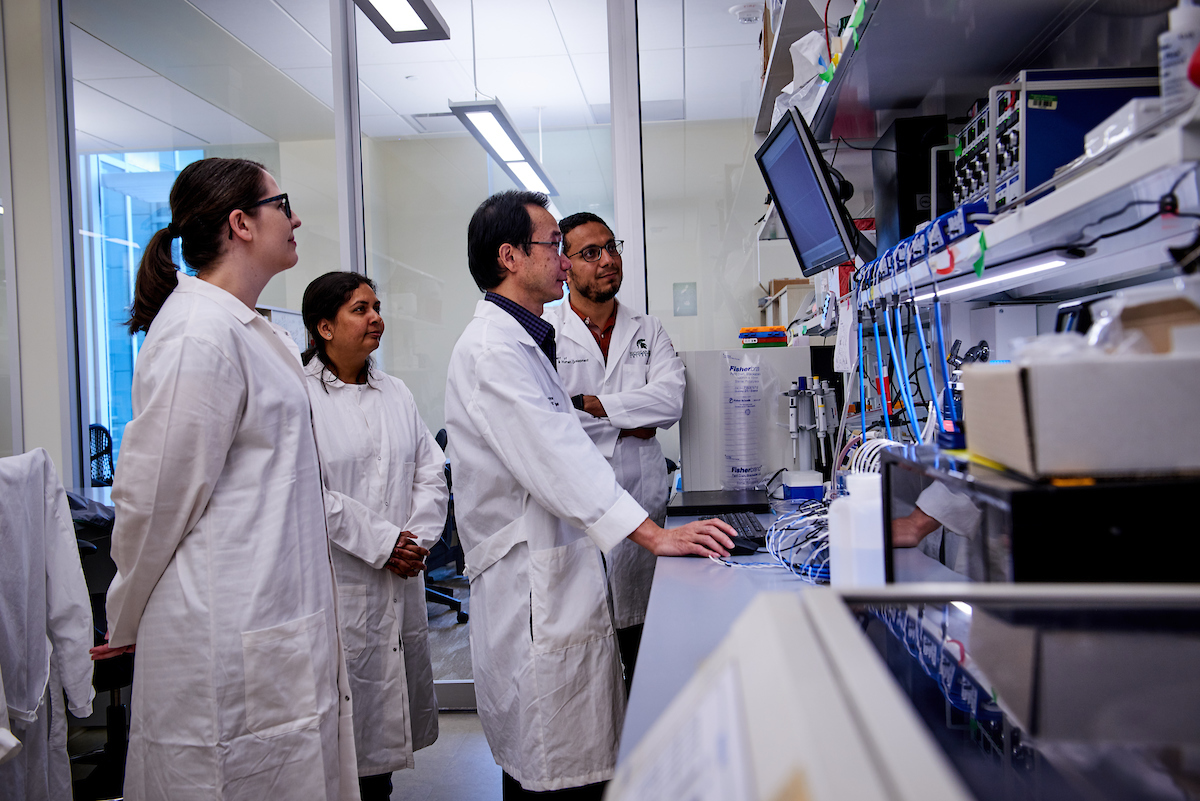
Established in 1968, the Department of Pediatrics and Human Development seeks to balance behavioral science, basic biological research, and clinical pediatrics into a comprehensive approach to the health and development of the child and the family.
Visit the Department of Pediatrics and Human Development website
Researchers
-
B. Keith English, MD, Department Chair
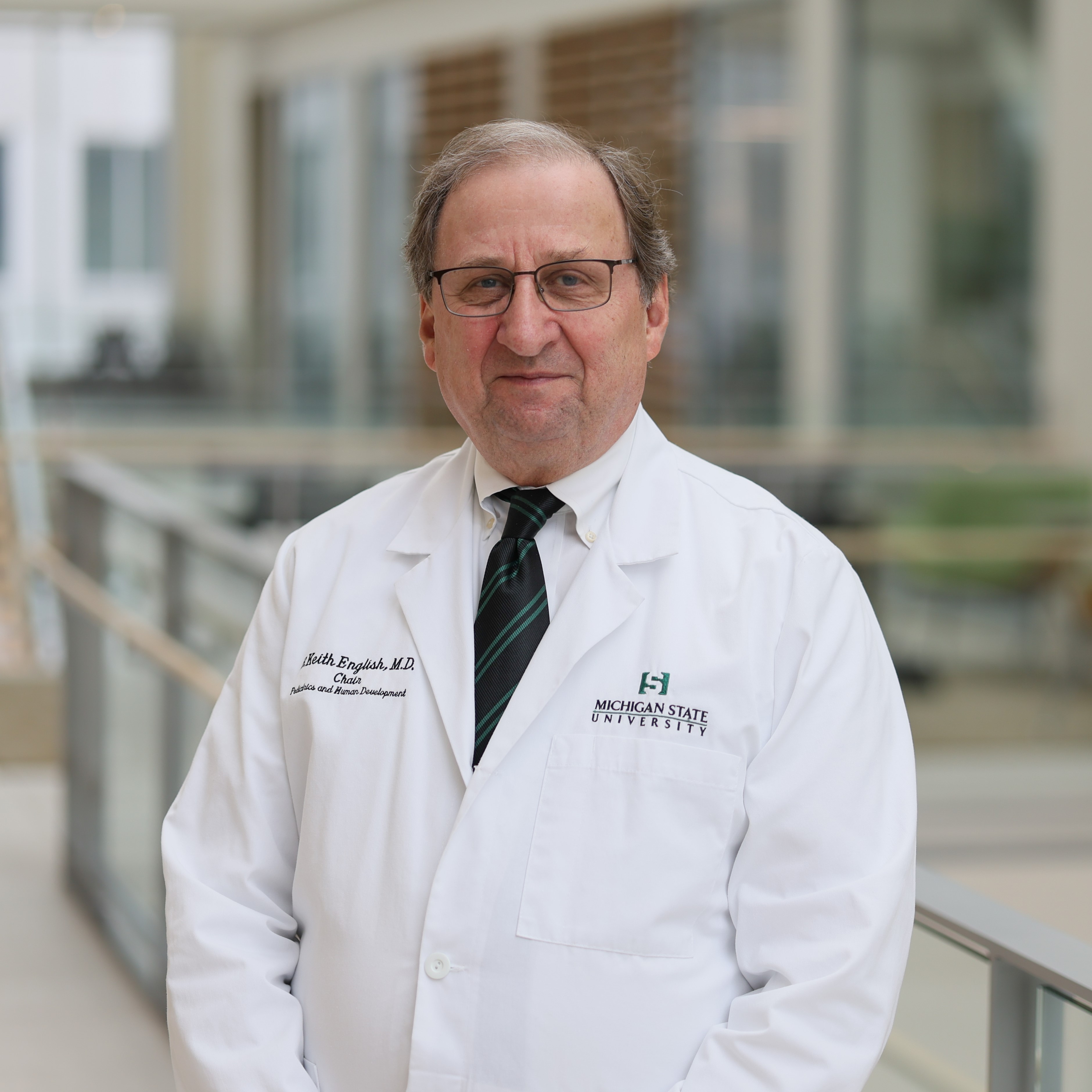 Professor and Chair of Pediatrics and Human Development
Professor and Chair of Pediatrics and Human DevelopmentB. Keith English leads a team of researchers seeking earlier diagnoses and better treatments for many pediatric diseases, including cancers and brain development disorders, such as autism. He has received numerous honors for his research in pediatric infectious diseases. He and his researchers focus on what he calls ‘the new biology’ of precision medicine, individualizing treatments for the genetic characteristics of each patient.
-
André Bachmann, PhD
Professor of Pediatrics and Human Development and Associate Chair for Research
André Bachmann seeks new natural product substances as well as existing drugs that can be adapted to fight childhood diseases, such as cancer. That includes DFMO (Eflornithine), an anti-parasitic drug he repurposed and that was recently FDA-approved for the childhood cancer neuroblastoma. Among other projects, Bachmann, the college’s associate chair for research, co-discovered Bachmann-Bupp syndrome, a rare neurodevelopmental genetic disorder in children, and he developed, patented, and licensed novel nature-inspired proteasome inhibitors for the treatment of cancer including multiple myeloma and autoimmune-related diseases.
-
Daniel Campbell, PhD
Assistant Professor of Pediatrics and Human Development
Daniel Campbell is a key member of the College of Human Medicine’s autism research team. He has published many studies about the genetic origin of autism, including one showing that infants who had a variant in a gene called MET and were exposed to high levels of air pollution, such as by living close to a major highway, were three times more likely to develop autism.
-
Bin Chen, PhD
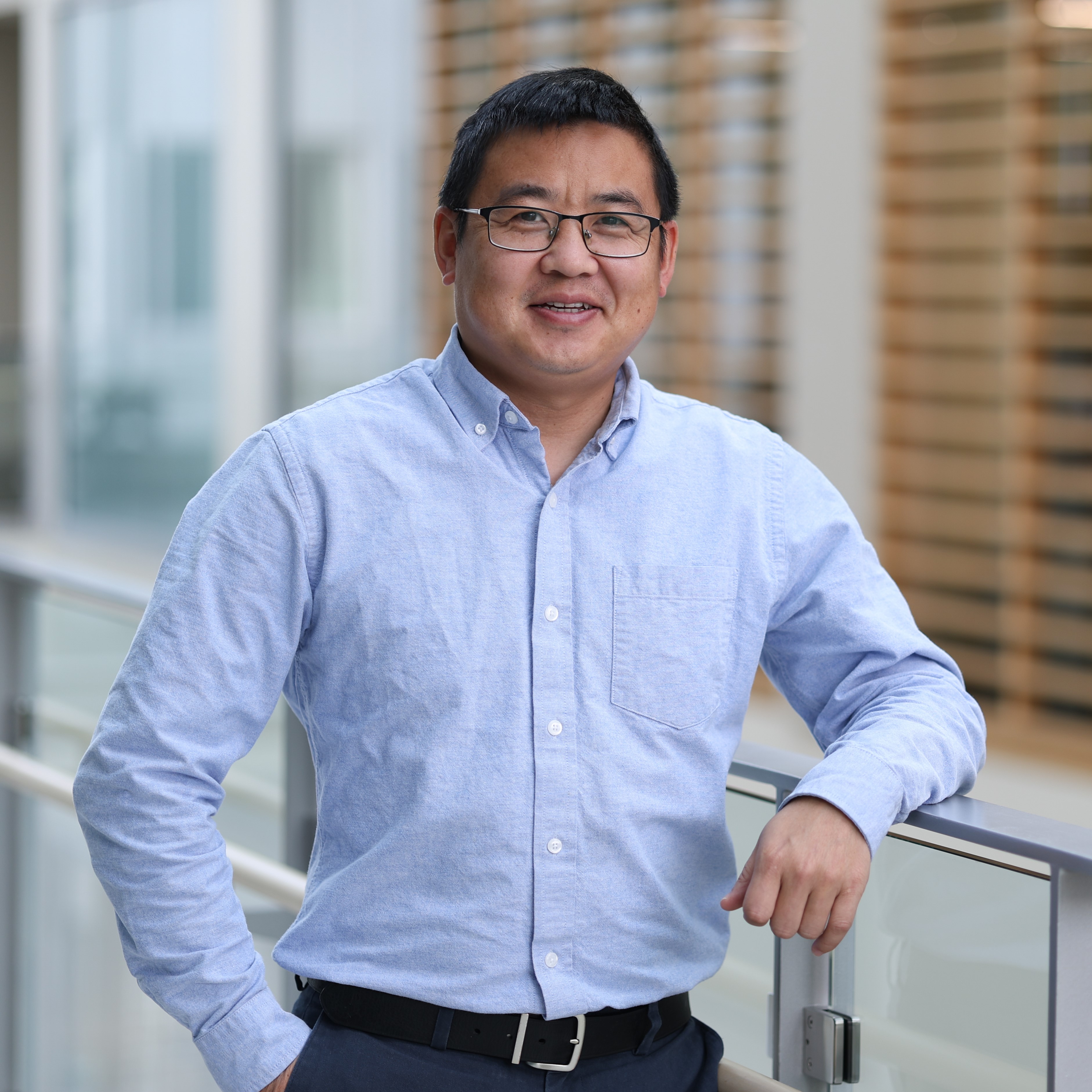 Assistant Professor of Pediatrics and Human Development
Assistant Professor of Pediatrics and Human DevelopmentBin Chen’s long-term goal is to develop computational methods and tools to discover new or better therapeutic candidates for cancers. The Chen Laboratory is interested in leveraging data and artificial intelligence to connect different components in translational research. Using a systems-based approach, the lab has successfully identified drug candidates for three cancers: Ewing’s sarcoma (Oncotarget, 2016), liver cancer (Gastroenterology, 2017) and basal cell carcinoma (JCI Insight, 2017).
-
Xiaopeng Li, PhD
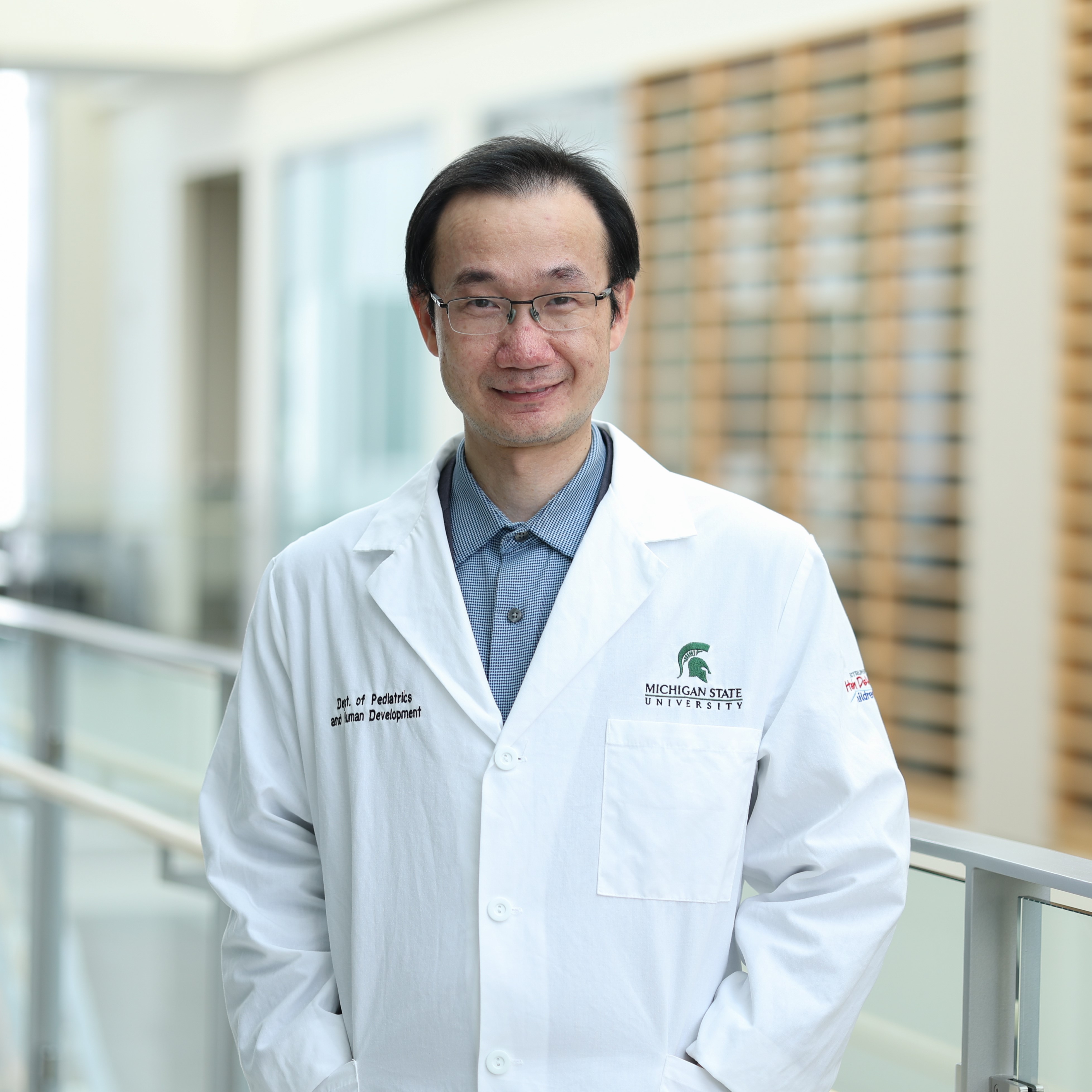 Associate Professor of Pediatrics and Human Development
Associate Professor of Pediatrics and Human DevelopmentA member of the Cystic Fibrosis Translation Research Program (CFTRP), Xiaopeng Li studies the role distal small airways play in the pathogenesis of Cystic Fibrosis (CF).
Dr. Li is developing gene therapy tools to prevent or cure CF.
-
Jeff MacKeigan, PhD
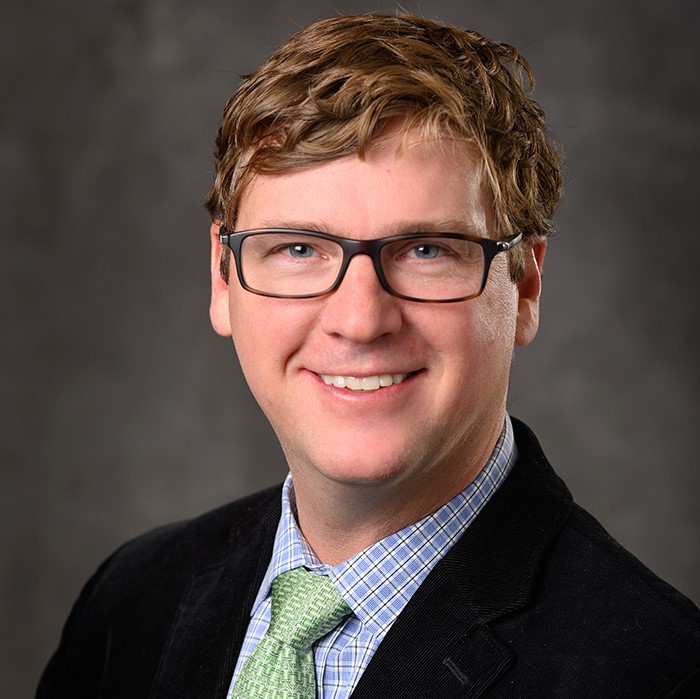 Assistant Dean for Research and Associate Professor of Pediatrics and Human Development
Assistant Dean for Research and Associate Professor of Pediatrics and Human DevelopmentJeff MacKeigan studies the mTOR pathway, which plays an important role in cancer and tuberous sclerosis complex (TSC). TSC is a rare tumor syndrome that is usually diagnosed during childhood, and causes tumors to form in the heart, brain, skin, kidneys, and lungs. Children with TSC may suffer from infantile spasms and epilepsy, along with cognitive disorders and developmental delays. MacKeigan’s lab has characterized the genomic landscape of TSC and is working with clinical collaborators to translate this knowledge into new discoveries for patients.
-
Lucas Pozzo-Miller, PhD
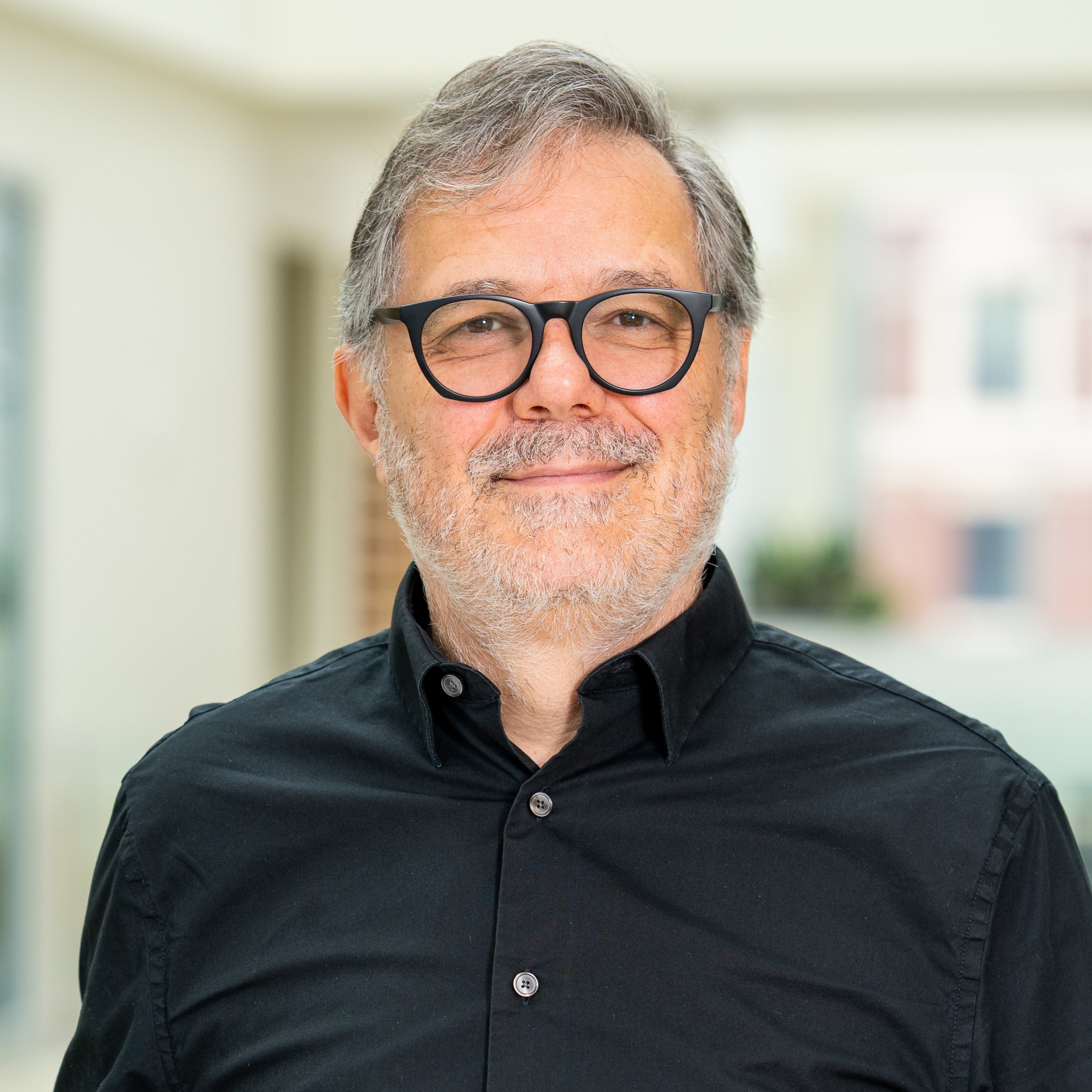 Professor of Pediatrics and Human Development
Professor of Pediatrics and Human DevelopmentLucas Pozzo-Miller works towards the understanding of the cellular bases of cognitive dysfunction in experimental models of neurodevelopmental disorders with autism, with the main goal of testing novel therapies in preclinical studies. Currently, the lab works on a genetic mouse model of Rett syndrome, a monogenic neurodevelopmental disorder with autistic features that affects girls and women because the gene that carries mutations is located in the X chromosome. We are testing if enhancing the function of the trophic factor BDNF in Rett mutant mice improves their social cognition.
-
Jeremy Prokop, PhD
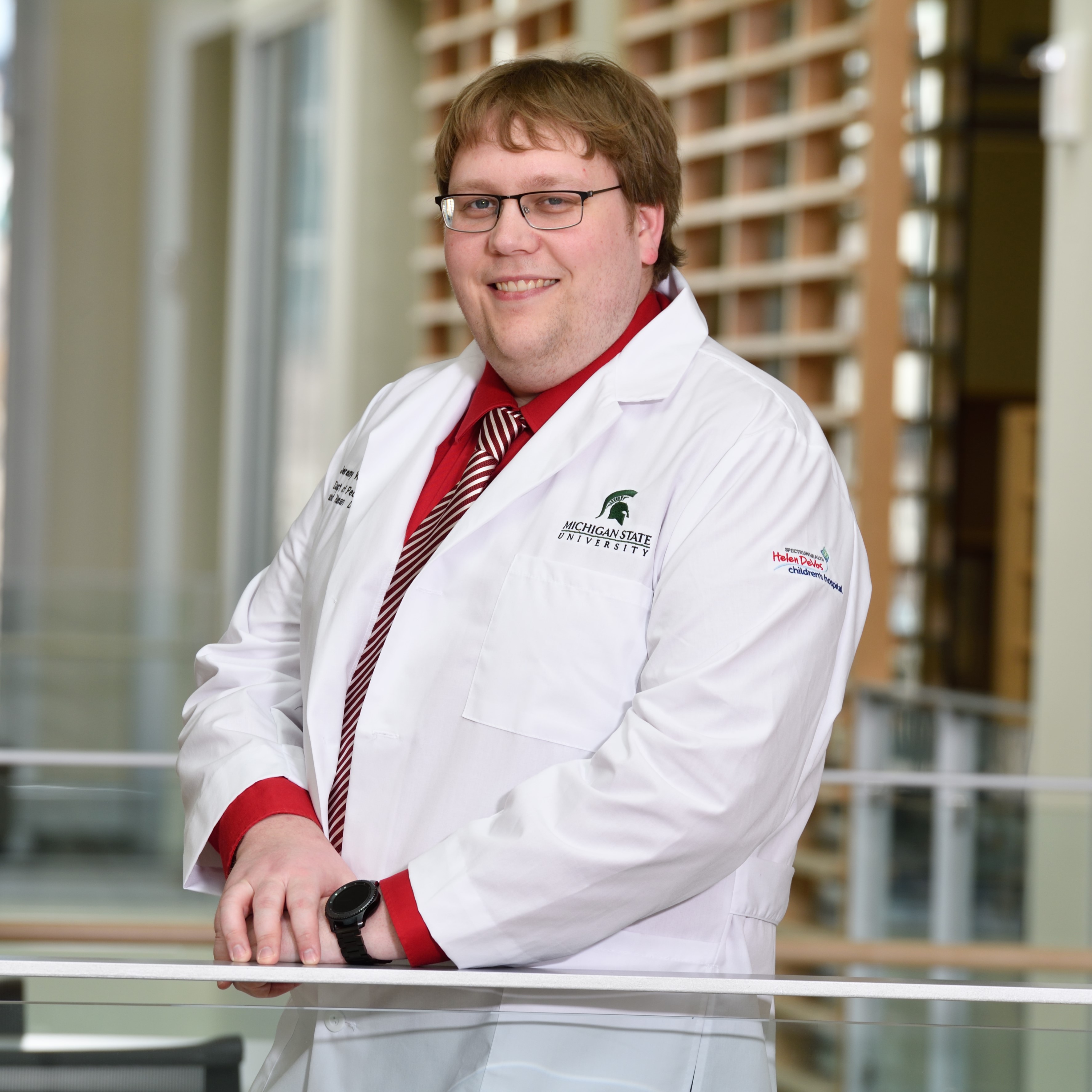 Assistant Professor of Pediatrics and Human Development
Assistant Professor of Pediatrics and Human DevelopmentJeremy Prokop develops tools for functional discovery of proteins and genetic variants in disease. His work involves evolutionary conservation combined with a structure to function analysis that facilitates the discovery of clinical variants that may be causal or associated with disease phenotypes. His lab is currently expanding work into iPSC and primary cell culture.
-
Barbara Thompson, PhD
Assistant Professor of Pediatrics and Human Development
Barbara Thompson uses behavioral, molecular and physiological techniques to study the impact of environmental and genetic perturbations on social and emotional neurodevelopment. Utilizing a combination of techniques in basic science and clinical research, Dr. Thompson’s laboratory explores functional disruptions in behavior to elucidate the underlying neural changes. Comprehensive characterization of these functional disruptions may then facilitate individualized interventions for individuals with neurodevelopmental disorders.
-
Daniel Vogt, PhD
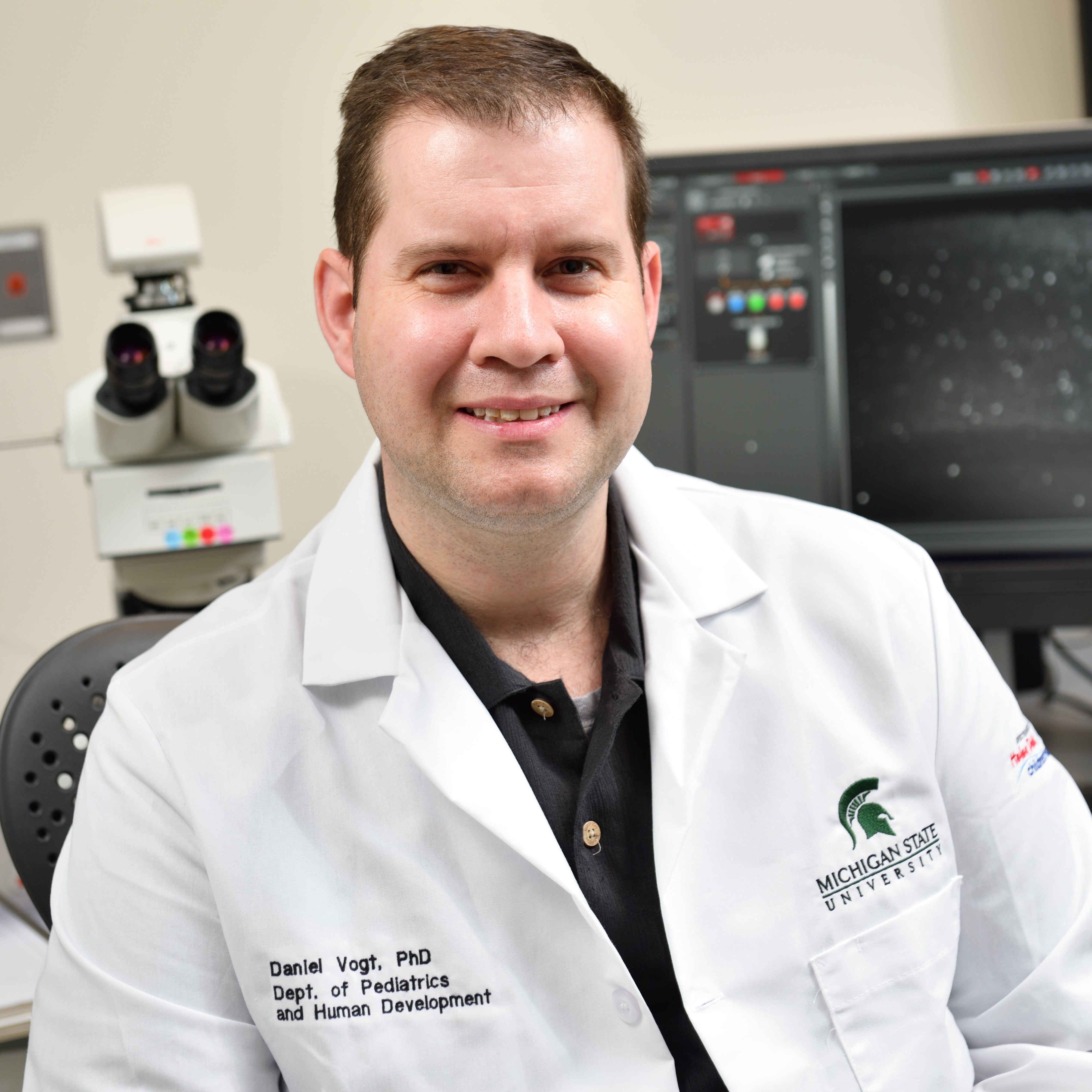 Assistant Professor of Pediatrics and Human Development
Assistant Professor of Pediatrics and Human DevelopmentWhile many genes are associated with autism, Daniel Vogt works at understanding exactly how each contributes to the disorder. Once the function of each gene is understood, the next step will be to develop treatments to prevent or mitigate the effects of autism, which is believed to result from a series of mutations combined with an external stressor, such as exposure to something in the environment.
-
Michael Williams, PhD
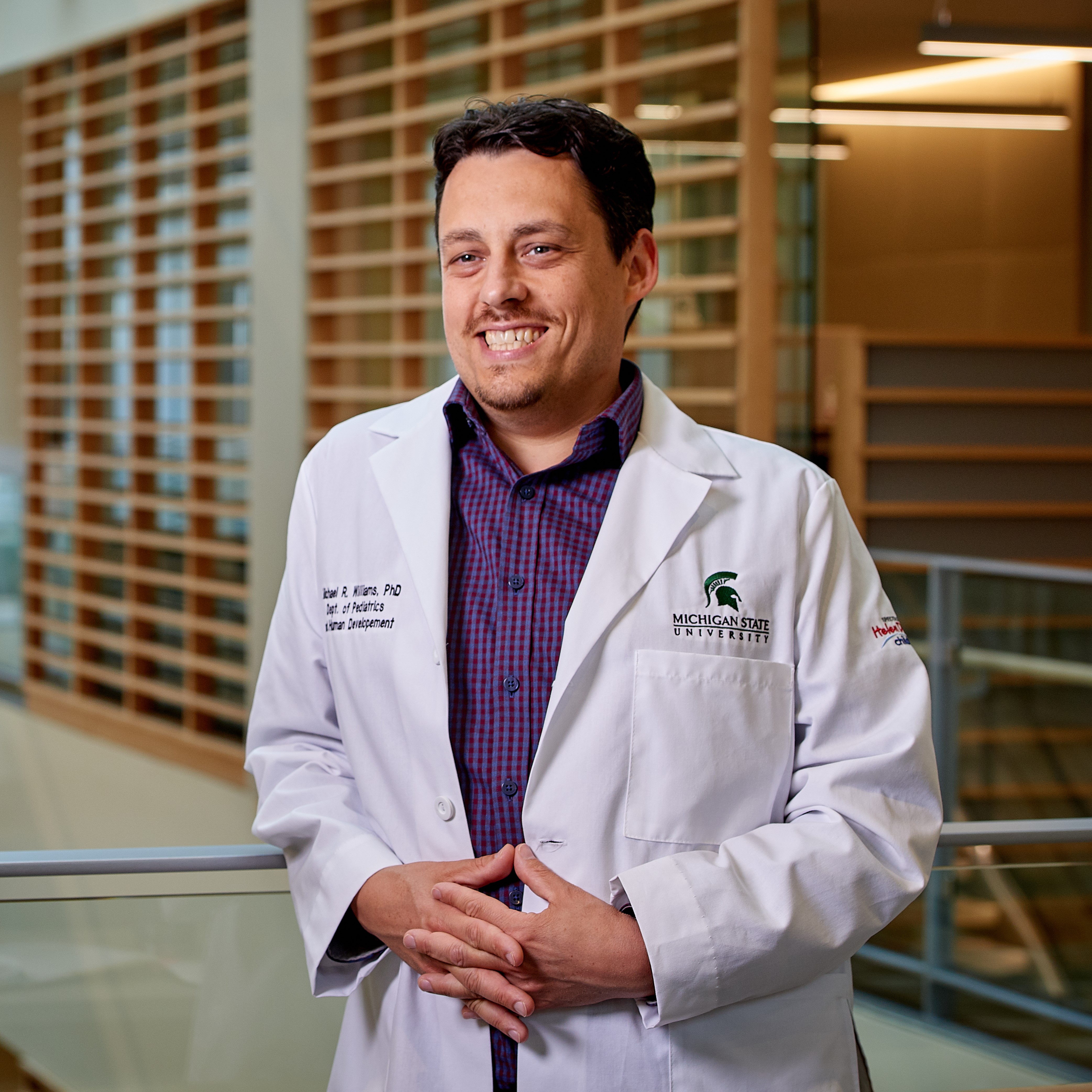 Assistant Professor of Pediatrics and Human Development
Assistant Professor of Pediatrics and Human DevelopmentMichael Williams studies how the genetic differences in individuals with autism spectrum disorder, epilepsy and other neurodevelopmental disorders change the ways the brain develops and functions. His research team specializes in using viral vectors and transgenic animal models to understand how candidate genes and their mutations impact neuronal development and synaptic communication between neurons. With a focus on signal transduction at the synapse, his group aims to inform the biology of typical neurodevelopment, identify druggable pathways, and conduct preclinical gene therapy studies in animal models.

